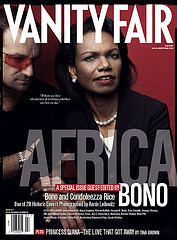I am newsless newswise (NN). TED has been great so far but I also want to know more about Tanzania on my first trip here (wandering around Lunga Lunga does not count)
One of the ways to appreciate what’s happening in a country (political, financial, investment, government, arts, developmentetc.) is to read as many local newspapers as possible – because while there are billions of things found online that a newspaper will not contain, there are also thousands of things in a daily newspaper that cannot be adequately captured online. However here at TED i have had a very hard time getting a newspaper to read.
I woke up on Day 1 (Monday morning) expecting to find newspapers available (free or tot buy) in the hotel lobby or gift shop. But I was told that daily newspapers would only arrive in the afternoon – which I found strange. And unlike in Nairobi or Kampala, there are no vendors milling around hotels selling newspapers. Have i found stumbled upon something here? Is the reading culture different from Uganda or Kenya and does that mean anything for the East African Community? Or is it just that guests at this premier hotel are usually not interested in the Tanzanian daily papers?
On Day 2 (Tuesday) I even got up at 5:30 a.m. and went in search of any shuttle driver (who transports delegates across town to conference) to buy and bring me a papers in the morning and I even left money at the reception.
So, after two days, I have got three newspapers. Day 1: Citizen, and Mtanzania (Swahili), that I that I bought at 1 PM from a vendor at the hotel. Day 2: the African that I believe was brought by a shuttle driver at about 12 PM. I have also had a change to read the Tuesday daily nation (Kenya) – a copy which belongs to the hotel.
I have become something of a newsless nuisance (NN) to the hotel staff who seem bemused at my desire to locate a newspaper in the morning (fresh with news for the day) – as if I am awaiting an important fedex package which I can’t trace.
It seems I may have to go to town myself to buy more papers like the business times, Arusha Times as well as other newspapers.
We’ll see what Day 3 brings….
